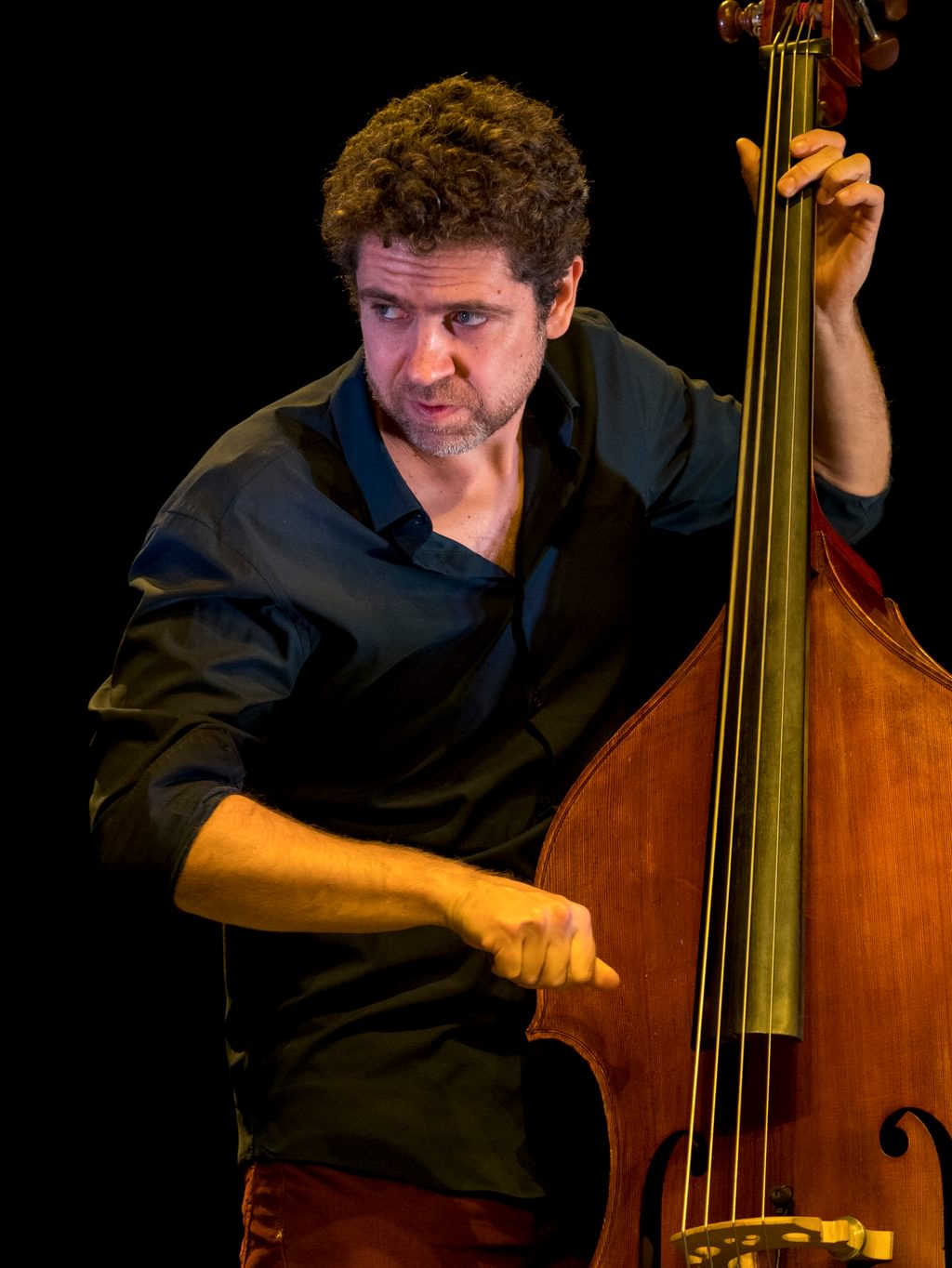Your first career was not in music, but as a cricket player. Why did you make the transition to become a professional musician?
Even before I started playing cricket professionally, I think I always knew I wanted to work in the music industry. My parents are both classical musicians, so I had grown up surrounded by music and played instruments from a young age.
The summer before I started at the Royal Academy of Music, I was on a contract with Somerset County Cricket Club. When the season ended, I just knew I didn’t have the willpower to continue in the sport, so when I was offered a place at the Academy to study jazz, I decided to make the move from Exeter to London and become a musician.
You mentioned your parents are classical musicians. How did you get into jazz specifically?
I started out playing electric bass and was lucky to have incredibly supportive parents who saw my potential. They would take me to see musicians outside of their field and found me some great local teachers. One teacher at my school, Dave Bowen, was a bass player and there was a local pianist called Craig Milverton, who was a big Oscar Peterson fan. They would play me all these records, which really inspired me. Even though they were both into completely different styles of jazz, they had a lot of wisdom to impart.
What was the highlight of your time at the Academy?
At school, I wasn’t listening to any of the ‘cool’ music that the other kids liked. When I got to the Academy, I had such a good time meeting like-minded people my own age, and just being immersed in that environment, talking about music and going to gigs. I was really inspired by the people in the year above me. They were exceptional! Some of them are teaching at the Academy now – Gareth Lockrane (Director of Junior Jazz), Tom Cawley (jazz piano professor) and Steve Fishwick (jazz trumpet professor).
You lived in the USA for 17 years. Tell us about your time there.
I was already quite established in the UK, but I wanted to break into the New York jazz scene. It was real shock suddenly to go from being a big fish in a small pond to a nobody in a big city. Luckily, I did have a slight advantage as I’d played with a lot of American artists in the UK as the pickup bass player. Those contacts definitely helped me make inroads.
There were challenges, because to start off with, I was making very little money. After a couple of years, I started playing with Jane Monheit and had a regular touring gig. From there, I started doing more and more on the New York scene.
The level of jazz in the city is so high. You have the greats teaching and playing there, the incredible institutions, and jazz is just seeping through the culture unlike in the UK. When you’re surrounded by that, you’re immediately inspired to get better and improve your technique. I’d recommend jazz musicians to go over there, even just for a few months, to soak up the atmosphere and get some inspiration.
How does the American jazz scene differ to the British jazz scene?
America is a huge country! There are a lot of people, and each city has its own history of music. Gospel music, for example, is huge in the USA and produces a lot of young, talented musicians. In many ways, learning music in church, by ear and with cultural meaning, is the way jazz should be learnt, rather than from a book.
In New York there are tens of thousands of musicians who come from all over the world. America is a country built on immigrants and you can see that influence in the music. For example, Latin American cultures are very prevalent and that influences the jazz and rhythm.
What are you proud of about your career?
I recently recorded an album with two of my idols, Jeff ‘Tain’ Watts and Mark Turner. It was a collaborative record, so I got to contribute musically and be a part of the process rather than just getting paid to play for them.
I think my career has turned out the way I hoped. Moving to New York, becoming respected as a great bass player in the USA, and getting to play with some of the people I have, such as Branford Marsalis and Kurt Rosenwinkel, are all really proud moments.
I did a podcast with a couple of other musicians, Alexander Claffey and Jochen Rückert. We spoke about the difficulty of rejection and it’s something I think should be discussed more. You have to be thick-skinned in this profession and aware of all the different reasons someone gets hired for a gig, but it’s important to take the time to pat yourself on the back for what you have achieved.
What advice would you give to an aspiring jazz artist?
Make sure that you don’t neglect the fundamentals of technique and let that hold you back from expressing what you want to say on your instrument.
My second piece of advice is, always take the bull by the horns and don’t just sit waiting for the phone to ring!
Are there any projects you’re working on you would like to tell us about?
I have a band called Romantic Funk. We’ve just finished a residency at the Vortex Jazz Club in London. We were workshopping some new music I’ve written, which I’m hoping to record soon.
I hope to tour the trio album with Mark Turner and Jeff ‘Tain’ Watts. Then this month, I’m going on tour with a great young American pianist called James Francies before squeezing in a holiday to the USA for Thanksgiving!
Photo credit Antonio Baiano
